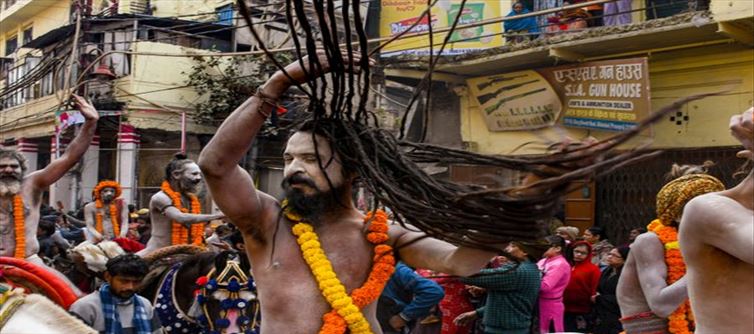
Muslim actors, despite their undeniable talent and contributions to indian cinema, have found themselves under attack on social media and beyond. The threats they face are not just about professional criticism; they often involve personal, violent, and life-threatening danger.
One high-profile example is that of bollywood actor Aamir Khan. Aamir, known for his socially relevant films and his support for various causes, became the subject of intense criticism and threats after he spoke about the growing intolerance in India. In 2015, he faced widespread backlash for stating that his wife, kiran Rao, felt unsafe in the country due to the rise of intolerance. This comment led to calls for boycotting his films, as well as protests, and he was even personally threatened. Khan, who had long been a beloved figure in the indian film industry, found himself caught in the crosshairs of a growing political ideology that saw his comments as an affront to nationalism.
Another example is Shahrukh Khan, the “King of Bollywood.” Khan, one of the biggest and most influential actors in the world, has also faced significant backlash for his identity as a Muslim. In 2015, Khan’s comments on religious tolerance were criticized by members of the political right. He spoke out about the challenges Muslims face in india, calling for greater harmony and understanding. This led to attacks on his character, with many calling him unpatriotic. Even Khan's most famous films, like My Name is Khan, in which he played a Muslim man confronting prejudice, have been used against him in political debates.
Social media and the Role of Online Hate
social media has played a significant role in amplifying the hate faced by Muslim actors. Platforms like twitter and facebook have become breeding grounds for trolls, often fueled by political and religious ideologies. The anonymity of the internet allows individuals to express their hatred in extreme ways, and Muslim actors are frequent targets.
The online abuse directed at Muslim actors is not limited to mere insults or criticism. It includes threats of violence, calls for boycotts, and even calls for death. The situation has become so dire that some actors, including aamir khan and Shahrukh Khan, have been forced to take extra precautions to ensure their safety.
The Effects on the Industry
The rise of such intense scrutiny and threat against Muslim actors has had a noticeable impact on the indian film industry. While some actors, like Khan and Khan, continue to work and advocate for their beliefs, others have chosen to step back or remain silent in the face of such growing intolerance.
Some Muslim actors have faced career setbacks as a result of their identity. Their work, once celebrated, is now used as a tool to paint them as anti-national or "traitors." This creates an atmosphere of fear and self-censorship, with some actors worrying about whether they should publicly express their views or engage in any form of activism.
Additionally, the audience's growing polarization has led to the formation of "us vs. them" narratives. Actors who openly express support for diversity, secularism, or tolerance find themselves alienated from parts of the audience, particularly those who feel a deep allegiance to the growing right-wing ideology. This divide has led to a decline in the kind of films that promote unity and a shift toward more ideologically driven cinema.
Resistance and Solidarity
Despite the growing threats, many Muslim actors refuse to be silenced. They continue to use their platform to speak out about issues affecting their community and the country as a whole. Shahrukh Khan, for example, has consistently spoken about the need for unity and secularism, and aamir khan has continued to make films that highlight social issues.
Additionally, many non-Muslim actors and filmmakers have expressed solidarity with their Muslim colleagues. The entertainment industry, although not immune to the pressures of politics, has often been a space where diversity and inclusivity have been celebrated. These actors, directors, and producers understand the importance of standing together against forces that seek to divide.
The Historical Narrative of Muslims and Terrorism
For many years, certain global events, particularly after the 9/11 attacks, have shaped perceptions of Muslims. Some have been wrongfully labeled as terrorists due to the actions of extremist groups. These actions, though perpetrated by a tiny minority, unfortunately led to widespread stereotypes and stigmatization of Muslims around the world. The so-called "War on Terror" and its global ramifications contributed to the narrative of Muslims being unfairly associated with terrorism, particularly in the media and by political entities.
However, it is crucial to understand that the vast majority of Muslims worldwide, who make up over a billion people, have not supported terrorism and have actively worked against it. This complex reality has often been overlooked by those quick to generalize. It's also important to note that Muslim communities across different parts of the world, including in india, have made significant contributions to society, culture, and the economy.
The Rise of Hindu Nationalism in India
In recent years, a rise in Hindu nationalism has brought a new dynamic to India’s political and cultural landscape. Hindu nationalist movements, particularly those associated with the ideology of Hindutva, assert that india should be primarily defined by its Hindu identity and that its laws and culture should reflect Hindu values.
While this ideology has existed for decades, its political influence has significantly grown with the rise of certain political parties in india, especially the bharatiya janata party (BJP). The rise of these movements has created a sense of empowerment among some Hindu communities, but it has also led to the marginalization of Muslims and other minorities. This shift in power dynamics has made some Muslim communities and their allies concerned, and many are questioning the impact of this rise on the secular and pluralistic fabric of India.




 click and follow Indiaherald WhatsApp channel
click and follow Indiaherald WhatsApp channel